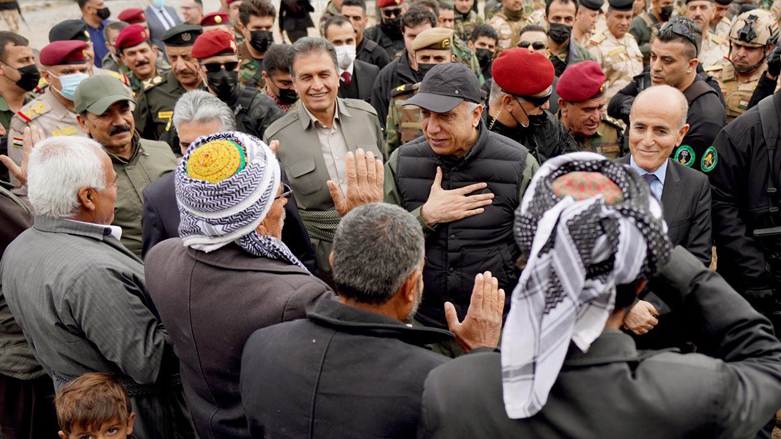Civilian, military cooperation factor in effective anti-terror campaign: Expert

ERBIL (Kurdistan 24) – Following the late 2017 fallout between Erbil and Baghdad as Iraq troops attacked Kurdish forces in the disputed territories, the joint counterterrorism efforts that had kept ISIS in check deteriorated, giving the terrorist group opportunities for resurgence, a security expert told Kurdistan 24.
Top officials, including Prime Minister Mustafa al-Kadhimi and President Barham Salih, celebrated on Friday the anniversary of the group's defeat. December 10 was declared an official holiday to mark the date.
Four years have now passed since the Iraqi government announced the territorial collapse of ISIS's self-proclaimed caliphate in the country after a costly three-year war. Since then, remnants of the terrorist organization have looked for lapses in security, especially close to areas they once held, to mount an insurgency.
Towards the end of the fight against the group's territorial holdings, former prime minister Haider al-Abadi turned the Iraqi military and allied Iran-backed militias expelled Kurdish troops from areas they controlled in an operation spearheaded by slain Iranian general Qasim Soleimani.
The US killed Soleimani in a drone strike in Baghdad after his Iraqi militia allies repeatedly attacked bases hosting US-led coalition forces, killing several troops and wounding others. The powerful militia commander Abu Mahdi al-Muhandis was killed alongside Soleimani.
The attack on the Kurds was followed by spikes in ISIS activities in nearby areas, namely in rural parts of the Kirkuk, Diyala, and Nineveh provinces.
The terror group has recently ramped up attacks again, targeting both civilians and security forces, particularly in the disputed territories, exploiting the areas' "security vacuum," a term Kurdish officials frequently use to refer to lack of coordination between Iraqi forces and Peshmerga.
Another factor affecting the effectiveness of anti-terror operations is the "lack of coordination between the security forces and the inhabitants of the area," Kamaran Palani, an international security expert and lecturer at Salahaddin University – Erbil, told Kurdistan 24 on Thursday.
Since 2014—and particularly 2017—"a lot of people who were providing intelligence to the security forces have left the area," Palani explained. While the Iraqi army and the Peshmerga have recently held joint operations to fight ISIS, effectively combating the group is "more complex," he added.
Related Article: Joint Iraqi-Peshmerga brigade deployed to Lheban village against ISIS: Official
The Iraqi and Kurdish governments have to "review the changes" that have taken place in the disputed territories after the Iranian-backed assault in 2017, the security expert said.
